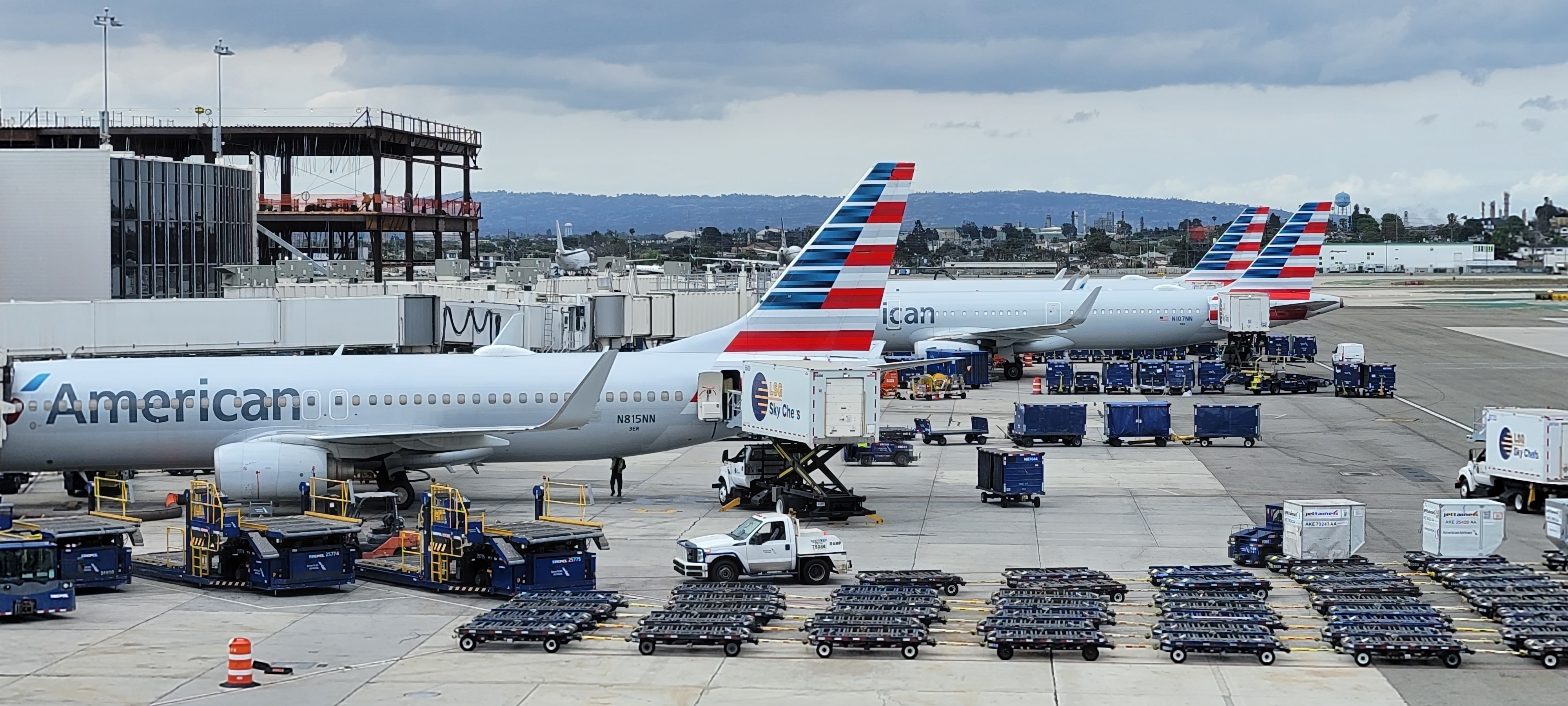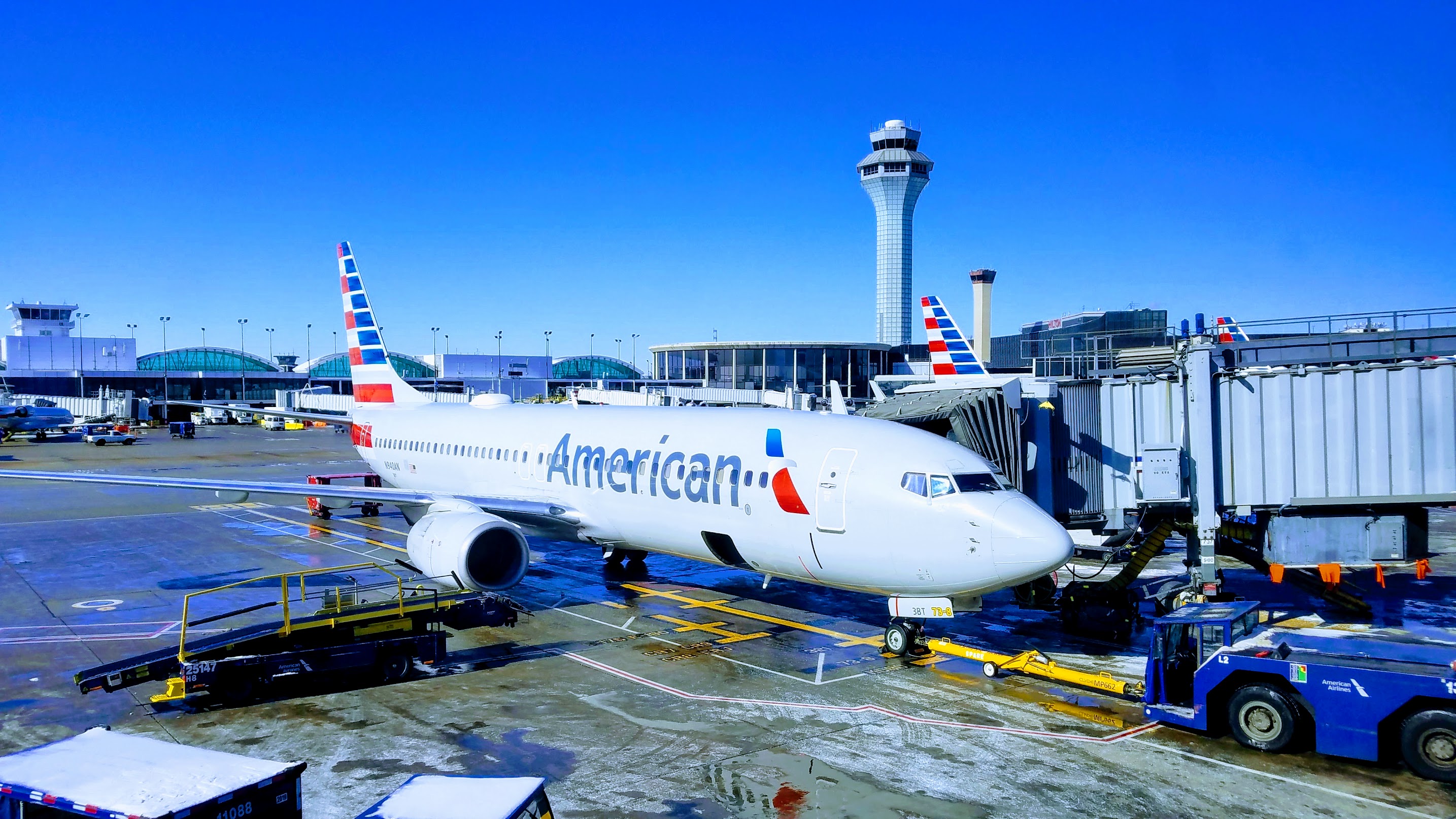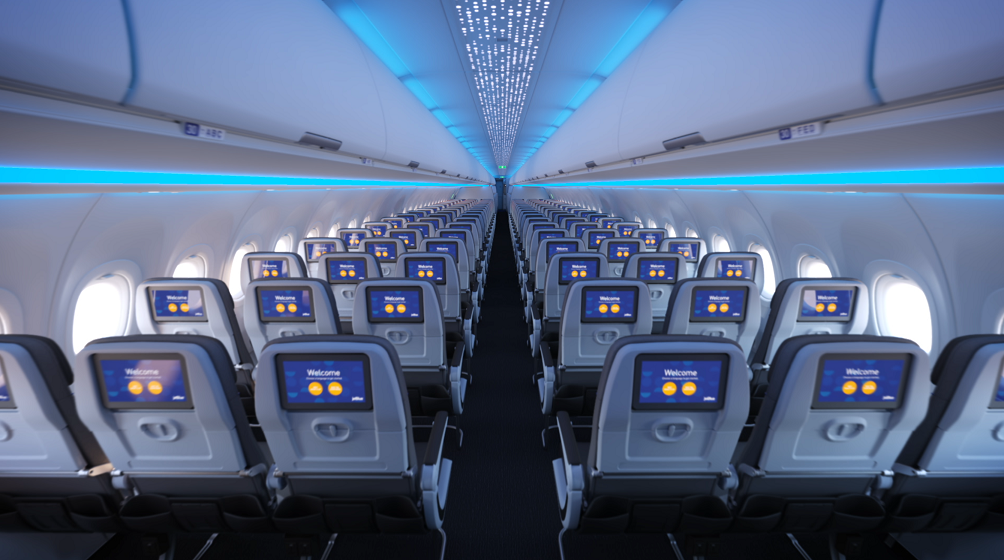American Airlines declared in court today that they “want to go forward with” a new partnership with JetBlue.
Oral argument was held today in the American Airlines appeal of the government’s anti-trust win against the Northeast Alliance partnership with JetBlue.
Here’s a recording of the argument
The main case being made by American’s attorneys is the point I’ve made since the beginning:
- that the preponderance of anti-trust caselaw focuses on consumer harm. If prices don’t rise, and if output (in this case, seats) aren’t restricted, then there’s no anti-trust violation.
- The Northeast Alliance did not raise prices, and their agreement with the Trump administration that originally approved the partnership required them to upgauge aircraft in order to grow the supply of seats in the market. With greater seat supply, prices did not rise. (American’s lawyers do exaggerate the increase in capacity, part of it was attributable to Covid recovery.)
- The district judge was wrong to conclude that the two airlines ‘divvying up’ which routes to fly was per se illegal.

American’s attorney was asked whether the case was moot, because JetBlue walked away from the deal? Only American is appealing. Since there’s no longer a viable partnership, why is this court being asked to render a judgment on the appeal?
American says it is because there’s an injunction that prevents them from doing any kind of partnership with JetBlue, not just restarting the Northeast Alliance (recall that the district court judge had said a partnership like American’s deal with Alaska would have been fine).
We don’t think the case is moot because we have an injunction that applies to us, that prevents us from entering into any similar arrangement and that gives the district court continuing jurisdiction over this case for at least 10 years. That’s a live dispute. We challenge that injunction. If this court vacates the decision as it should, the injunction would go.
And this is very different from the JetBlue-Spirit merger case, in which both parties stipulated to the dismissal of the appeal which left in place an injunction which enjoined the transaction in that case.

Pressed further, though, they’re asked but then why wouldn’t you have to wait until you’re actually ready to do a new deal with JetBlue in order to have standing? Shouldn’t the court wait until there’s a live controversy, an intention to move forward with a JetBlue partnership?
We do want to go forward with similar arrangements, obviously JetBlue is not here and cannot speak, we do.
Pressed further about whether they really are considering a new JetBlue partnership, the lawyer responds “We would seriously consider that, yes, and the injunction prevents us from doing that.”

Although he also noted that this issue was raised in the airline’s brief, and the government didn’t dispute that the injunction gave them standing. In the government’s portion of oral argument they conceded there’s a live dispute and standing.
British Airways was certainly frustrated with American Airlines dropping much of its efforts at managed travel deals, which the U.K. carrier depends on to fill its premium cabins on this side of the Atlantic as part of their joint venture. BA sought its own U.S. customers through a status match that angered American executives (including Vasu Raja, architect of the sales strategy and since dismissed).
I took BA’s new partnership with JetBlue as indication that British Airways needed more traffic than American could now provide them, a frustration with their American partnership. But if American and JetBlue really rekindled their partnership, the British Airways deal would make sense in a different (although not mutually exclusive) way.
The best thing possible for New York passengers, and seemingly the only way that American and JetBlue can be viable competitors in New York, is for these airlines to partner. Because the government limits takeoffs and landings at New York airports, there is no way for any carrier to grow organically. That means the position of Delta in New York is completely locked in – the government’s anti-trust case secured Delta’s dominance.
I am not going to read too much into the tenor of questioning by the judges, which often seemed more skeptical of American than of the government. That can either be a sign that they aren’t persuaded or that they are and want to test the firmness of that conviction before issuing a ruling.


American Airlines absolutely has a remedy in the JetBlue matter — it can pursue a formal merger with B6. A pseudo merger that divvies up the marketplace will not fly now or later.
I think American Airlines is correct in their actions on this subject. I doubt that any large merger with the big four USA airlines would be approved due to making the market more monopolized.
AA needs to grow back BOS, LGA and JFK. Buying B6 would solve that. DL and UA have no claim due to their size in the NE. The question is, do it now, wait for B6 to get in a real world of hurt or just pick up the pieces after B6 goes BK.
I hope AA gets justice here. They were wronged. I’m excited for the resolution of this.
Fatty, stop trying to pretend you know law. There are more holes in your sad AA coloured glasses than Swiss cheese.
The judge told AA and B6 they could have pursued a non-immunized partnership without a joint venture and without slot swapping and they can still do that.
Like B6, how much time will AA waste trying to pursue strategies that won’t work and ultimately be worse off in the end?
It is more telling that AA really doesn’t believe it can make an AA/AS type partnership with B6 work instead.
AA has lost so much corporate traffic on both coasts and doesn’t have a fix for it – that should be the most concerning.
I hope that those opposed to increased consolidation and more concentrated power for industry cartel kingpins manage to land their hands on all the communications that AA and BA have had about JetBlue and that it becomes part of the public record in a trial opposite AA’s position on this matter.
AA needs to get this ruling ASAP!!
Should B6 gets back on its feet, gets it act together on north east connections, and fully leverage its BA alignment; then the courts will shy away stating the NEA would have too much influence in NYC and BOS.
Therefore, AA needs to portray B6 as a struggling “Fun In the Sun” airline which which is barely able to support its own customers, let alone, compete with the dominant UA at EWR and super carrier Delta at JFK & BOS.
Not all rulings are fact based. Perception can influence an opinion.
And AA just got a little bit bigger……..
AA and B6 will very likely, down the road, pursue a combination that will eventually lead to a merger and this will help solve AA’s long running problem in NYC and BOS, though this is mostly of their own making, but not entirely. DL snapped up valuable LGA and JFK slots over nearly two decades, strategically, and purposefully, while the regulators either looked the other way or couldn’t be bothered. UA’s NY area position is entirely attributed to what it inherited with the CO merger and grown and optimized since. Neither UA nor DL can object or complain about a future AA/B6 tie up. UA has an outsized share of the EWR market. DL has plenty at JFK/LGA.
B6 needs to be carved up. BOS/JFK going to AA and MCO/FLL going to either F9 or NK. Not sure how they accomplish it outside of a B6 bankruptcy.
@mikey JetBlue NEEDS to be carved up? And for what reason? If anything, AA will declare bankruptcy before B6. Get a grip.
I get the argument, but American is only in this position by their own string of bad choices over the decades, so I don’t feel sorry for them at all. Delta had their head in the game the entire time and played to win- and win they did. Heck they gained LGA from USAir management directly! Now this American/Usair monster wants to partner with a competitor to make up for their own lack of management and strategy. Cute.
TWAviator gets it.
And the incessant hopes that AA and B6 will merge to bail AA out of its mistakes is nothing but head up the backside thinking.
AA and B6 have the same problem in S. Florida that B6 and NK had; as much as the focus continues to be on NYC and BOS, S. Florida is the problem. B6 still provides a significant competitive role to AA’s massive MIA operation. It is doubtful that AA can merge or cooperate w/ anyone that has a significant presence in S. Florida.
AA is not entitled to additional market share in the Northeast. They screwed the pooch and now they have to deal with the consequences of their poor choices. For those of you forecasting a B6/AA merger, the DOJ just killed a combo between the 6th and 8th largest carriers. Who in their right mind would approve a combo that makes the largest carrier even bigger? Makes no sense. B6 and AA need to figure it out on their own.